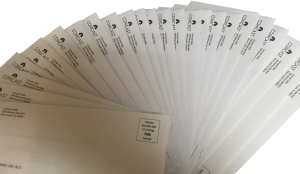 It may be a new year, but Strike 3 Holdings is continuing its old tactics. On January 19 and 21st, Strike 3 Holdings filed 14 new BitTorrent copyright cases in Michigan. Last year, Strike 3 Holdings filed more than 100 complaints in Michigan alone, with the majority of complaints being filed between September and December.
It may be a new year, but Strike 3 Holdings is continuing its old tactics. On January 19 and 21st, Strike 3 Holdings filed 14 new BitTorrent copyright cases in Michigan. Last year, Strike 3 Holdings filed more than 100 complaints in Michigan alone, with the majority of complaints being filed between September and December.
Each complaint is nearly identical and alleges that an IP address was recorded downloading and sharing Strike 3 Holdings’ copyrighted adult films through BitTorrent networks. Its films are marketed under the Tushy, Vixen, Blacked, and Blacked Raw brands.
This Plaintiff sues each unnamed internet subscriber as a “John Doe”, identified only through an IP address. They then ask the court’s permission to subpoena the internet service provider (ISP) and compel it to reveal the subscriber’s identity. Strike 3 Holdings uses the identity to serve the Defendant with a summons that must be answered in court or the Defendant could face a default judgement against them.
Often, a defendant first discovers the lawsuit when they receive a letter from their ISP notifying them of the subpoena and the possibility to file a Motion to Quash. A Motion to Quash is a formal request to the courts to stop (or “quash”) the subpoena. Motions to Quash are complex in these cases as the subpoena is between the Plaintiff and the ISP, meaning the subscriber is a third party to the subpoena. If a subscriber wishes to remain anonymous, it is important to secure representation without delay. This provides more options to protect your identity and fight the allegations.
Although each lawsuit is similar, every case represents potentially thousands of dollars in damages per infringement if not properly defended against. These companies invest money into each case and hope to maximize the damages for their financial benefit. These notices are serious. If you do not respond, the ISP is obligated to provide your identity to the Plaintiff, which allows them to serve you with a summons and complaint. Once you are served, you typically have 21 days to respond in Federal court.
For more information on what these lawsuits mean for internet subscribers, please check out our FAQ section.
Many defendants wish to defend anonymously because federal civil lawsuits are generally public record and easily searchable. For those who wish to minimize the suit’s effect on their private and professional lives, it is vital they retain counsel without delay.
If you have received a notice in one of these cases, please don’t hesitate to call me immediately at 888.801.8681. If calling after-hours, please leave a message; I do return calls after-hours.
I have years of experience defending file-sharing lawsuits and can help you achieve the best outcome possible. I have defeated several copyright plaintiffs in lawsuits around the U.S.; I also fought Malibu Media in their first trial. I’ve represented over 600 defendants in both settling and litigating file-sharing lawsuits. I’ve written a subpoena defense guide for your information, as well.
I look forward to speaking with you and helping you put this matter behind you. Please don’t hesitate to call. 888.801.8681.
Yours,
Leonard French